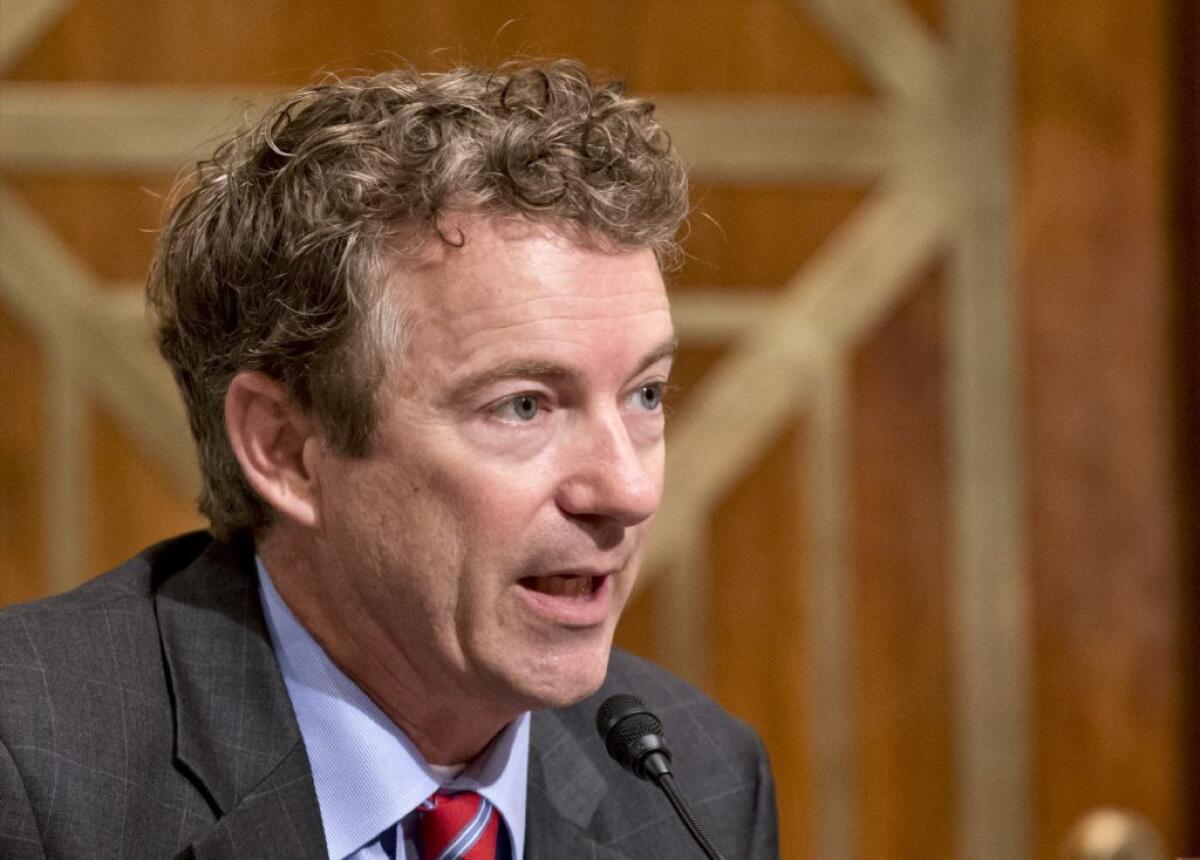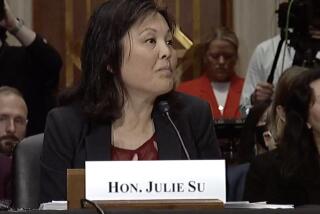Scholar: Rand Paul misstated my research on unemployment

Under normal circumstances, an up-and-coming academic might be pleased to have his work cited by a leading politician in the heat of a major policy debate.
Not so Rand Ghayad, who will shortly be receiving his Ph.D. in economics from Northeastern University, and whose research on unemployment was cited admiringly by Sen. Rand Paul (R-Ky.) in a recent essay about why extending unemployment insurance is a bad thing.
The problem, Ghayad wrote in a piece for the Atlantic, is that his research implies just the opposite. Ghayad’s research indicates that employers discriminate against the long-term unemployed. That’s the part of his work that Paul picked up on. The phenomenon, in fact, is pretty widely acknowledged.
But Ghayad says Paul’s wrong to attribute to his work the further conclusion that the provision of unemployment benefits for longer periods explains the persistence of unemployment, especially long-term unemployment. “Just because companies discriminate against the long-term unemployed doesn’t mean long-term benefits are to blame,” Ghayad wrote in the Atlantic. “Paul might know that if he read beyond the first line of my paper’s abstract.”
The first line of the abstract reads, “Many analyses (point) to extended unemployment benefits as a reason” for persistent unemployment.” The second line reads: “However, other explanations have also been proposed for this shift, including worsening structural unemployment.”
The dispute is important because the idea that unemployment benefits foster unemployment is a key argument raised by conservatives against the extension of the benefits. The Senate approved a three-month extension Tuesday for 1.3 million Americans whose benefits ran out on New Year’s Eve. But the extension faces stiff opposition in the GOP-controlled House.
In his essay, Paul doesn’t cite any evidence for the notion that unemployment benefits encourage joblessness. In fact, he’s expressed that viewpoint so often that he doesn’t even mention it explicitly in the piece, beyond a generalized swipe at “well-intentioned, big-hearted, but small-brained responses to real problems.” It’s treated as a given.
But Ghayad’s paper, written for the Federal Reserve Bank of Boston, finds that “a significant portion” of persistent unemployment (the technical topic of the research is the Beveridge curve, which tracks the relationship between job openings and unemployment) has occurred in recent years among new entrants to the work force and “unemployed re-entrants”--that is, people not eligible for any unemployment benefits at all. Possibly half the trend can be attributed to the “disincentive effects of unemployment benefit programs,” Ghayad writes.
His conclusion is that “the increase in the unemployment rate relative to job openings will persist when unemployment benefit programs expire.”
Put simply, that means that the idea that unemployment benefits keep people from looking for work shouldn’t be part of the debate over extending benefits. That leaves in place another important rationale for extending benefits--to keep food on the table and a roof over the heads of the families of the long-term unemployed. The argument that unemployment benefits only encourage unemployment--Rand Paul’s argument--looks more than ever merely like an excuse for denying help to people who need it.
[For the Record, 4:53 p.m. Jan. 7: An earlier version of this post referred to Rand Ghayad as Rand Ghayan.]







